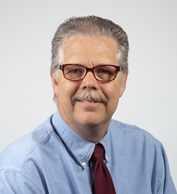FAITH + IDEAS =: last updated 04/05/2012
April 3, 2012 | Volume 5, Issue 6
Faith + Ideas = an e-conversation with the Faculty of Gordon College
By Cliff Hersey
On the shelf in my office sits an egg, beautifully decorated with beads. It was one of several I purchased on my first trip to Romania shortly after the fall of Communism. At that point, the exchange rate was over 30,000 Romanian Lei to one U.S. dollar, so I paid little more than a few pennies for these wonderful works of art. I used to have more of them, but I’ve found over the years that they also make meaningful gifts—particularly when I have forgotten to buy something else.
My job as dean of Global Education for Gordon College literally takes me across the globe every year as I visit students studying in programs abroad and evaluate or plan additional options. Everywhere I go, I see great works of art, from hand painted eggs to stained glass windows. And because I am also an ordained minister, I seek out places of worship when I travel. In fact, friends joke about my ‘habit’ of slipping into every old church I see. But as a result, I have enjoyed Evening Vespers at Christ Church in Oxford and fellowship dinners in Romania, grand cathedrals in Italy and England, transplanted American communities, and spirited gatherings of impoverished believers in Belize and South Africa.
As the season we call Easter is again upon us, I confess that its message is often what animates my quest to explore these global expressions of the faith. Easter—in the West at least—is the last remaining season of the Christian year that we have not completely ruined by turning it into yet another occasion for conspicuous consumption. Sure, there is the inevitable rush for new clothes, egg hunts, or extravagant family meals, but all of those traditions still seem like an extension of the core spirit of Easter, one that reminds us of something new.
That ‘something new’ is what drives my curiosity for these global gatherings and ancient sanctuaries; they never come across to me as dead expressions of faith. That’s not to say I haven’t experienced worship services devoid of life—I have—but the very message of Easter suggests that renewal and life is possible anywhere, that hope can be found in the midst of even the most dire of circumstances. After all, a true Christian reading of Easter means a promise of something better is always evident, no matter how tiny the thread. It is a promise with no geographic boundaries.
Its traditions, though, are as diverse and enduring as its message. The powerful symbolism of potential for life that is found in the egg, for instance, pre-dates the Christian era, like many of our familiar symbols. The ancient Egyptians, Persians and Romans all used eggs in their celebrations of spring. Medieval Christians were forbidden to eat eggs during the 40 days of Lent, so boiling, pickling and preserving them in other ways enabled a veritable feast of eggs at the Easter table.
Eggs became a gift to family and friends, but one not to be eaten until the breaking of the fast, and so they took on a meaningful symbolism of future life and enjoyment. Decorating eggs, particularly in Eastern Europe (like my Romanian egg) and under Christian Orthodoxy, became an art form, preserving and celebrating the symbolic nature of new life in often magnificent forms.
In the U.S. each spring, the Easter Jesus is nearly eclipsed by the Easter Bunny. Globally, of course, bunnies don’t translate very well—what, exactly, does that large bunny do?—but the symbolism of the egg does transcend both place and belief as a reminder of the core message of Easter: new life. And unlike the seasonal chaos and financial pressures applied by Santa Claus to displace Advent and the Christmas story, Easter remains genuinely Christian for most of us, even those who are not believers. At the foundation of all of Christianity’s varied and often contentious mix of customs, after all, is the resurrection of Jesus.
So as the Easter season grabs our attention once again, I’m hopeful it will also allow us to think about the role faith has in our lives of making all things new. That’s what faith does best. It helps us to see beyond whatever circumstances are part of the present. It births new relationships, new ways to initiate a peaceful world, new commitments to welcoming the stranger, and new ways of opening ourselves to possibilities, wherever they may take us.
Cliff Hersey is the dean of global education at Gordon College in Wenham, MA. He and his family live in Quincy, MA.
